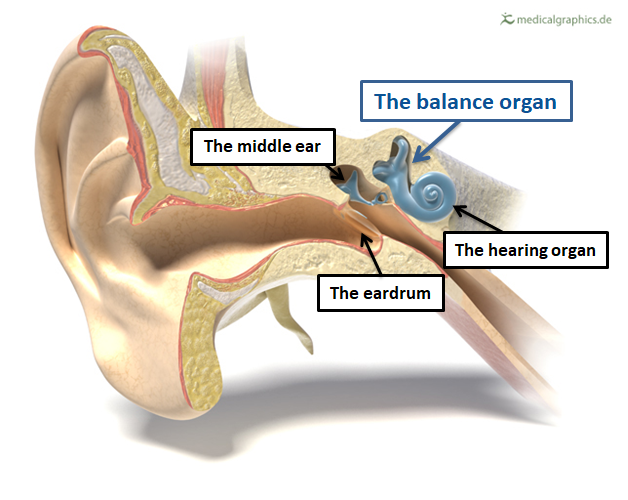Dr. Raymond van de Berg of the Maastricht UMC+ talks about the balance organs and what happens if they fail.
For English subtitles, click on the subtitle button in the bottom-right of the video.

In the same way that the body is able to see and hear, it is also able to sense movements. Movements are measured by two tiny balance organs which are located in both ears near the hearing organ (the cochlea). The balance organs are able to sense head movements and the effects of gravity. They provide the body with information necessary to stay balanced during movements, together with the senses of vision and touch. The balance organs are also able to control the eyes during head movements. This prevents blurred vision during fast head movements or when walking, for example.
The function of the balance organs can decrease significantly; it can even fail completely. There might be several reasons for this: a hereditary/genetic disease, a disorder of the ear such as Ménière’s Disease, or the use of certain medications. In up to half of the cases, we don’t know why balance organs stop working properly. Patients notice the effects of this loss either suddenly or gradually. The symptoms may also involve attacks of vertigo, but this is not always the case. It is possible that only one of the two balance organs stops working. This single-sided loss of balance function is called “unilateral vestibulopathy”. If both `balance organs stop working, it is called “bilateral vestibulopathy (abbreviation: BV).
When one or both balance organs stop working, you may experience one or more of a variety of symptoms, for example blurred vision during body movements and the feeling that the horizon is not stable anymore. This is called oscillopsia. You may also have difficulties keeping balance – this may vary from a complete loss of balance to a feeling similar to being drunk. The body tries to compensate for the loss of balance by relying more on the other balance organ (in case only one balance organ does not work properly) and on other senses such as vision and touch (“proprioception”). This demands a lot of effort, which is not always noticed by the person affected. Therefore, fatigue and memory problems can arise as well as concentration problems and an unwanted sensitivity to certain stimuli, such as being troubled by fast-moving or repetitive visual surroundings. A defective balance organ may also cause psychological problems such as depression. Over 75% of patients having significant problems with both balance organs are unable to work.
When a balance organ fails, it almost never recovers on its own. Currently, there are no treatment options to restore the function of a balance organ that does not work properly. Physical activity and physiotherapy may reduce the symptoms, but specific physical problems and discomfort remain especially when both balance organs fail. Therefore, different research groups worldwide are currently working on treatment options. One of these options is the artificial balance organ, called the “vestibular implant”.
More information on how the balance organs work and how to treat balance problems can be found on the website of the Maastricht University Hospital (in Dutch).